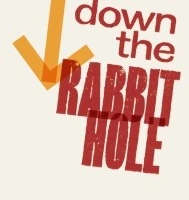TOKYO STORY directed by Yasujirô Ozu (Japan,1953)

Meet the parents : Shukichi (Chishu Ryu) and Tomi Hirayama (Chieko Higashiyama).
Watching a cinematic masterpiece on a laptop computer requires a degree of cultural adjustment. This disorientation is compounded by the fact that Ozu’s Tokyo Story has very little of what western audiences have come to expect from movie dramas.
There are no heroes or villains and at a superficial level nothing much happens at all. Spare dialogue and static shots emphasise the slow pacing which gives the film a quiet, meditative quality. We learn as much about the characters from what they do rather than what they say.
Like so many great movies, the story is simplicity itself. An elderly couple decide to make a long journey by train to visit their children and grandchildren in Tokyo only to find that they are regarded as a tiresome intrusion rather than welcomed with open arms. They are not directly snubbed; instead, their offspring go through the motions of being attentive hosts but can’t be bothered to take time out from their busy schedules.

Noriko (Setsuko Hara)
The only person who shows real patience and kindness towards them is the luminous yet lonely daughter-in-law Noriko, the widow of a son who was killed in the war. Their eldest son, a doctor, and daughter, a hairdresser, are too wrapped up in their own lives in Tokyo to devote any quality time to them.
The retired couple know they are nearing the end of their lives and that these visits may be their last. As well as being a sober, unsentimental reflection on mortality, the heart of the movie is the implicit message that patience and compassion are fundamental humanistic values that we ignore at our peril.
The line from another son, Keizo, who lives in Osaka, “No one can serve parents beyond the grave” is all the more ironic as he was arrives too late to say a last farewell to his dying mother.
This movie was recently voted the third best film of all time by critics and, in a separate poll , a group of illustrious directors rated it at number one.
I wouldn’t personally rank it as highly but it is certainly a movie which retains a power and integrity. The modern world is very different from post-war Japan but what it says about family values and human relationships still has a contemporary resonance.
I’m sure most viewers would recognise the universal truism that giving time to blood relatives and loved ones requires a degree of unselfishness that is so much easier to preach than to practice.







